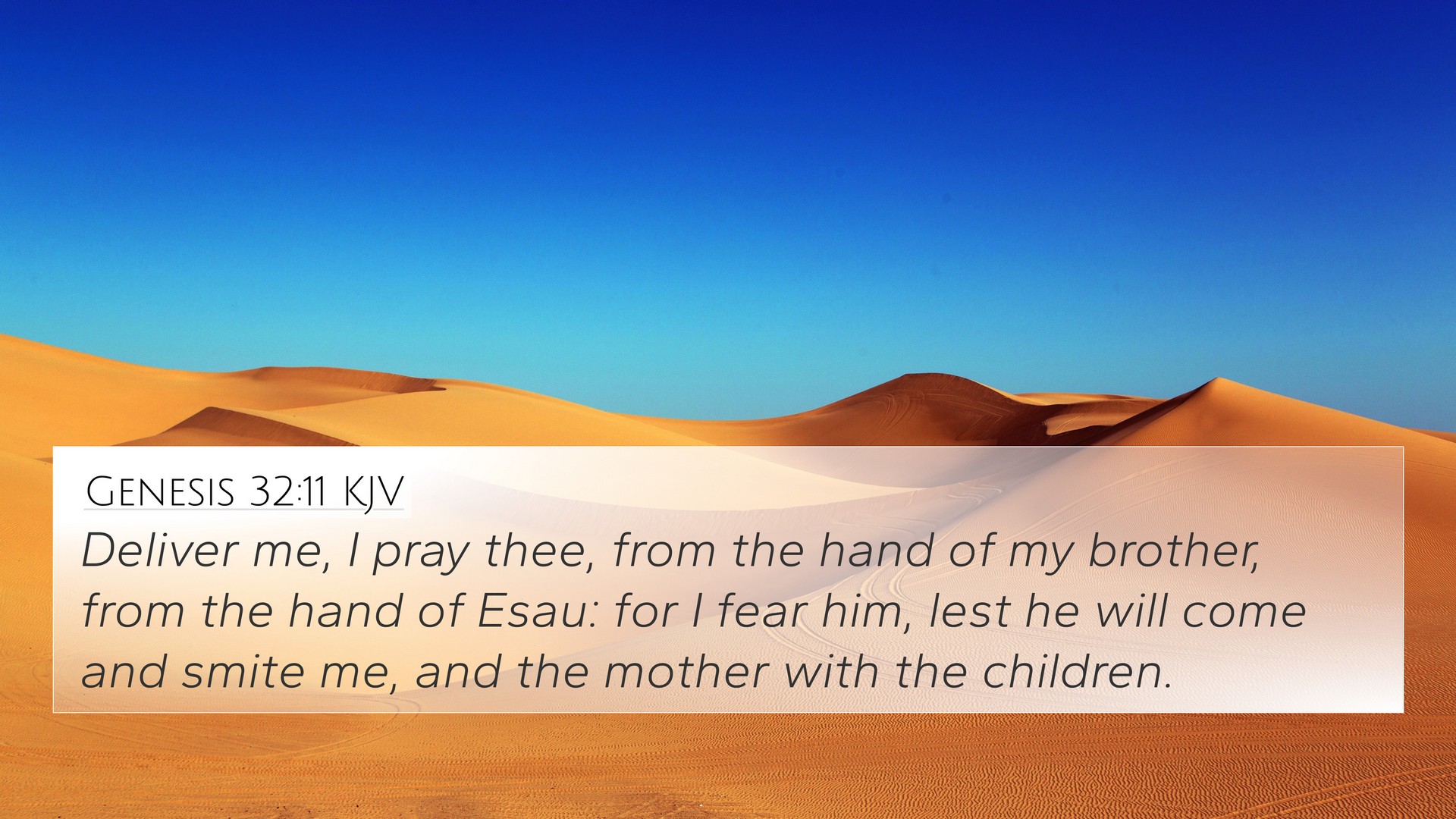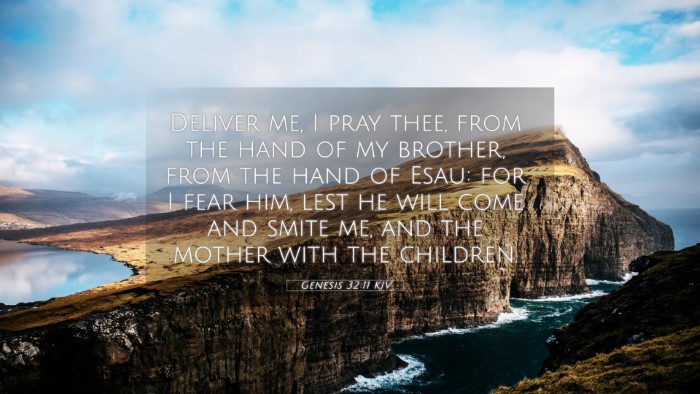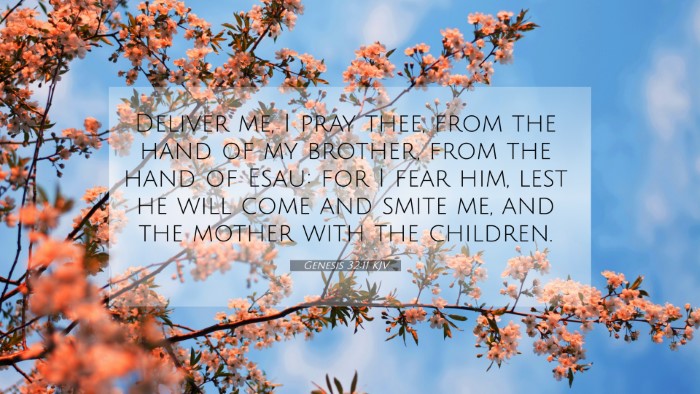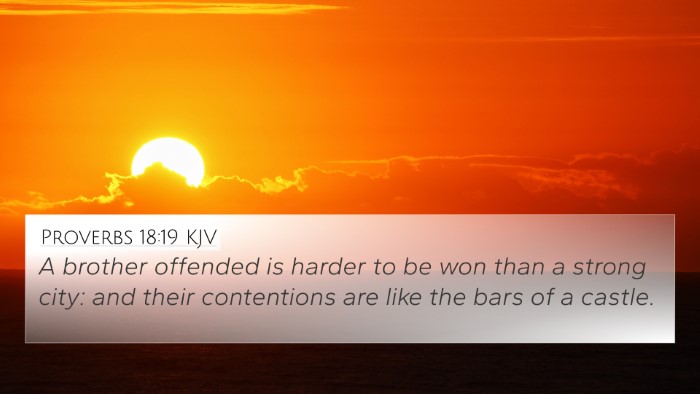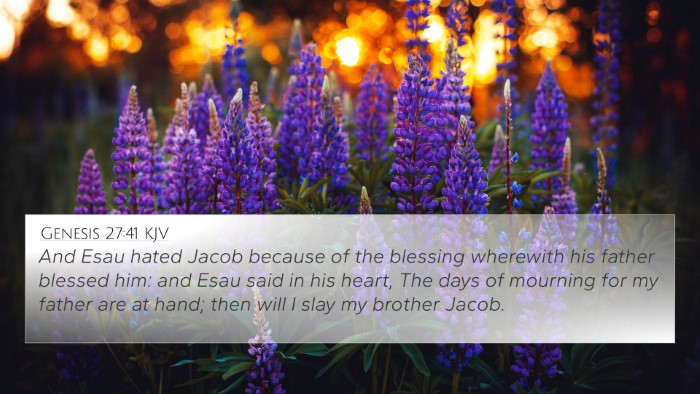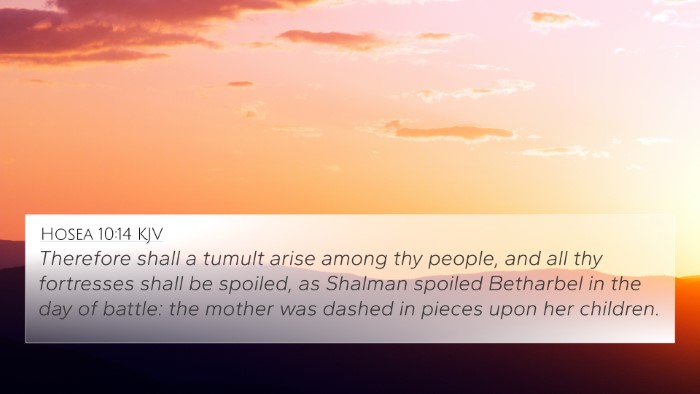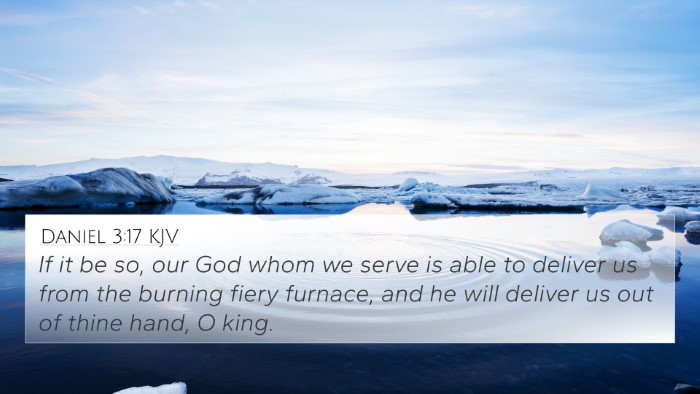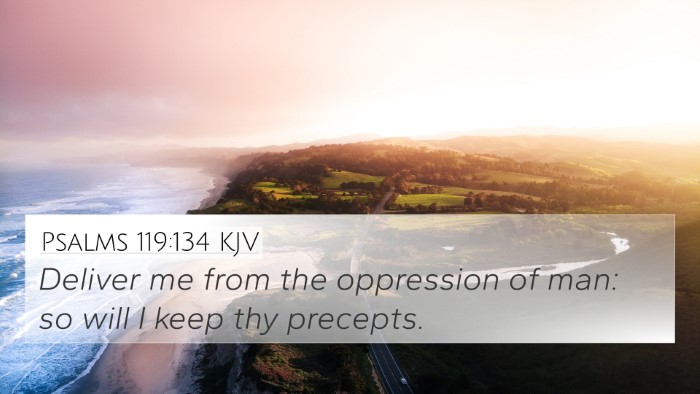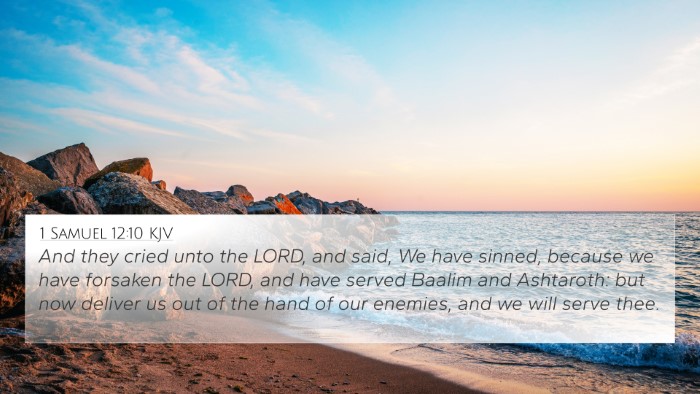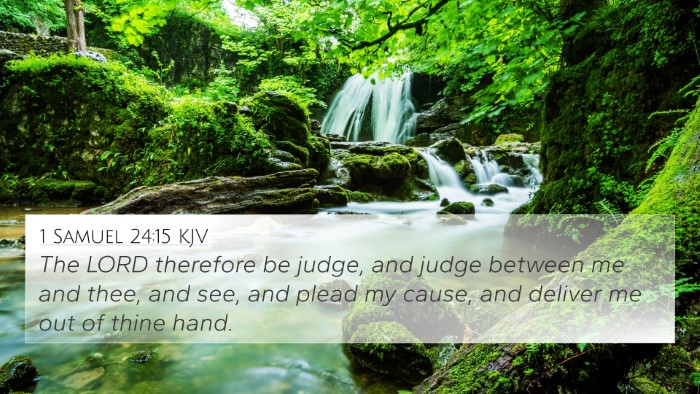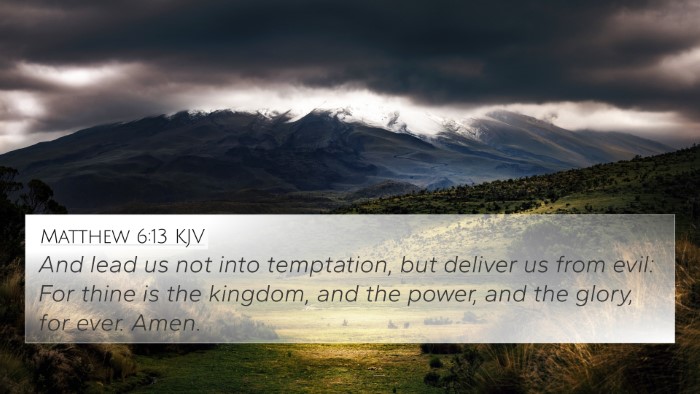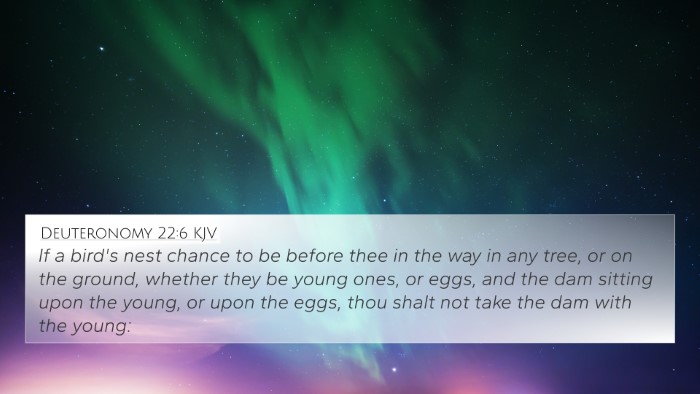Understanding Genesis 32:11
Genesis 32:11 states:
“Deliver me, I pray, from the hand of my brother, from the hand of Esau; for I fear him, lest he come and attack me and the mother with the children.”
Meaning and Context
This verse captures a moment of profound anxiety for Jacob as he prepares to face Esau after years of estrangement. The essence of the passage reveals Jacob's deep concern for his safety and the well-being of his family. This verse is pivotal as it reflects Jacob's acknowledgment of his past wrongdoings and his plea for divine intervention.
Summarized Insights from Commentaries
Matthew Henry's Commentary
Matthew Henry emphasizes Jacob's fear rooted in his past actions against Esau, particularly the birthright incident and the blessing he received deceitfully. Henry explains that Jacob's prayer reveals his humility and acknowledgment of his need for God's mercy and protection, illustrating a key theme of repentance and reliance on God amidst trials.
Albert Barnes' Notes
Albert Barnes highlights the significance of Jacob’s prayer as a reflection of his desperation and the earnestness of his faith. Barnes suggests that Jacob is not only aware of his personal failings but also addresses God with sincerity, which exemplifies the importance of faith through fear. His insistence on being delivered from Esau represents the human struggle between past guilt and present hope.
Adam Clarke's Commentary
Adam Clarke provides a detailed analysis of the cultural context surrounding Jacob's plea. He notes that Jacob's fear of Esau is justified given the potential for violence and revenge, which was common in their society. Clarke also points out the duality of Jacob's situation—he is a favored son yet a deceiver—showing the complexities of divine favor and the human heart.
Bible Cross-References
Understanding Genesis 32:11 is enhanced through exploration of various cross-references that deepen the thematic connections within Scripture. Here are some related verses:
- Genesis 27:36 - Discusses the birthright and blessing taken by Jacob, eliciting Esau's anger.
- Genesis 33:4 - Esau's eventual forgiveness and embracing of Jacob.
- James 4:10 - Encourages humility before God, relevant to Jacob's situation.
- Philippians 4:6-7 - Assures believers to present their requests to God, resonating with Jacob's plea.
- Psalms 34:7 - "The angel of the Lord encamps around those who fear him," reflecting divine protection.
- 1 Peter 5:7 - "Cast all your anxiety on him because he cares for you," correlating with Jacob's trust in God.
- Romans 8:31 - "If God is for us, who can be against us?" relating to Jacob’s need for divine help.
Connections Between Bible Verses
The verse establishes a thematic connection to the fears and struggles individuals face when approaching others they have wronged. It exemplifies the importance of reconciliation, which is further explored in the broader narrative of Jacob and Esau.
Linking Bible Scriptures
This passage serves as a pivot point in Jacob's transformation from a deceiver to one who seeks God's favor. His prayerful reliance on God amidst fear serves as a motif mirrored in the life stories of several biblical characters who faced overwhelming challenges.
Inter-Biblical Dialogue
The dialogue between Genesis 32:11 and subsequent redemptive acts within the Bible illustrates the continuity of God's merciful nature. Jacob’s journey exemplifies how God remains faithful even when His people falter, inviting readers to examine their relationship with Him.
Thematic Bible Verse Connections
This verse reflects themes of human vulnerability, the importance of humility, and the transformative power of faith. By aligning Genesis 32:11 with other scriptural passages, readers can grasp the overarching narrative of redemption and forgiveness that runs throughout the Bible.
Conclusion
Genesis 32:11 provides a profound insight into Jacob's heart and his reliance on God's intervention. Through a thoughtful exploration of commentaries and associated scriptures, we gain a deeper understanding of the complexities surrounding trust, fear, and divine mercy in the human experience.
